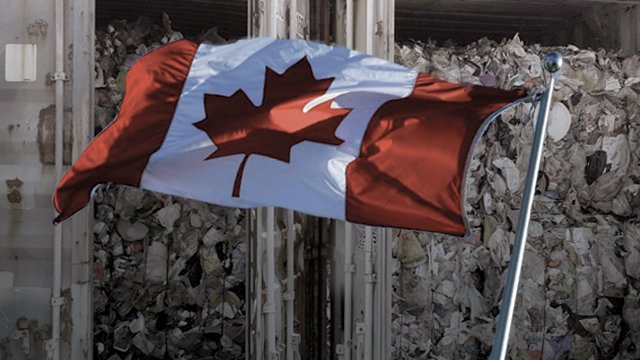Waste crisis: countries affected by problems with garbage.

It is necessary to highlight that both countries had agreed in 2013 to send recyclable garbage to the Philippines, however the shipments that arrived at the port of Manila contained non-recyclable items that were outside the agreement, so the Philippines assumed only recyclable materials (36 containers) while requesting Canada to return to that nation non-agreed waste. After Duterte's action, the Canadian Government decided to assume its responsibility and hired the services of a local company that will be in charge of processing this waste for an investment of more than 1.5 million Canadian dollars (US$ 850,000).
But the Philippines has not been the only developing country to refuse to receive garbage from developed countries, such as China, Malaysia or Vietnam themselves that have taken steps to deny entry to waste from Europe, North America or Japan . Precisely in January 2018, China, previously importer of garbage, warns the world that it will stop receiving 24 types of waste within its territory (around 100 million tons), a situation that triggered alert alarms among the group of developed countries , who are already suffering the onslaught of the waste crisis. It is necessary to point out that before the veto the Asian giant since 1992 received 72% of the world's garbage in contrast to today, global garbage production increased by 800%.
Before the measure taken by China, Japan exported to that country 50% of the million and a half tons of garbage they produce per year, mostly made up of plastic waste, which now forms part of the garbage dumps of the Japanese archipelago . According to data provided by the Japanese Ministry of Environment, 25% of regional administrations report that the accumulation of plastic exceeds the standards required by the sanitary standards of that country, causing the need to rethink new regulations to deal with this serious trouble.
Another country that has experienced serious problems in the management of plastic waste following the veto of China is the United States. Recently the Asian giant returned to the United States a shipment of 469 tons of solid waste, which will end up buried in the dumps of the American Union. The United States, like most developed countries, built their recycling system around the shipment of garbage to China and other countries, so while the population discarded their bottles of soft drinks, yogurts, sauces, DVDs, milk cartons or cans of beverages in the corresponding containers for recycling these were accumulated to be taken to China country that would be responsible for transforming the garbage. With the environmental measure taken by China, the American landfills will be supersaturated in less than twenty years, the same situation will be experienced by countries such as Canada, the United Kingdom, Germany or Russia.
The most critical of the situation is that it becomes clear that the productive model at scale generated by the capitalist system is unable to contain the expansion of solid waste in the world, at the same time as the policy of moving garbage to countries in development has aggravated environmental problems, to such an extent that these countries, which are mostly very poor, prefer to refuse income from receiving "recycling material" since this action has a direct impact on the health and well-being of their inhabitants. Likewise, given the incessant production and accumulation of plastics in the landfills, they are permeating towards the oceans, the crisis that they generate in marine life being already unquestionable, even to the point of creating a new continent in the middle of the Pacific made by the human being: the so-called "Plastic Island".
Internationalist Carlos D. Pérez Guerrero / @ waraira777